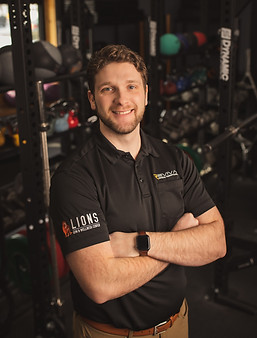Frozen shoulder, also called adhesive capsulitis, is a condition that makes your shoulder stiff and painful. It can make everyday activities very difficult. In this post, we’ll explain what a frozen shoulder is, how to treat it, and how to prevent it. We’ll also highlight how physical therapy can help. Let’s get started!
What is a Frozen Shoulder?
Frozen shoulder happens when the shoulder capsule, a connective tissue around the joint, gets thick and tight. This causes pain and makes it hard to move your shoulder. We like to explain it as going through three stages:
- Freezing Stage: Your shoulder and its movements start to become more and more painful, and it gets harder to move. This can last from six weeks to nine months.
- Frozen Stage: The pain might lessen, but your shoulder stays stiff. This stage can last from four to six months.
- Thawing Stage: Your shoulder slowly starts to move better, and the pain goes away. This can take from six months to two years.
Causes and Risk Factors
We don’t know exactly what causes frozen shoulder, but several things can increase your risk:
- Inactivity: Not moving your shoulder for a long period of time, often because of surgery, injury, or illness.
- Diabetes: People with diabetes are often more likely to get frozen shoulders.
- Age and Gender: People between 40 and 60 years old, especially women, are more likely to get it.
- Other Medical Conditions: Conditions like thyroid problems, Parkinson’s disease, and heart disease can also increase the risk.
Common Symptoms of Frozen Shoulder
- Dull or aching pain in the outer shoulder and upper arm.
- Increased pain at night, which can make it difficult to sleep.
- Stiffness and limited movement in the shoulder, making it difficult to do things like getting dressed or reaching for objects.
Treatment Options and How Physical Therapy Plays a Role

Treating frozen shoulder focuses on reducing pain and improving shoulder movement. Here’s how physical therapy can help:
- Physical Therapy: Physical therapy is essential for treating frozen shoulders. A physical therapist will create a personalized exercise plan to improve your shoulder’s mobility and strength. At Revival Physical Therapy in Minneapolis, we design treatments to fit your specific needs. Searching for “PT near me” can help you find local experts.
- Heat Therapy: Using heat on your shoulder can relax your muscles and improve blood flow, making it easier to do exercises.
- Manual Therapy: Techniques like joint mobilization and massage can help improve mobility and reduce pain. Revival Physical Therapy includes these services in our treatment plans.
- Surgery: In severe cases, surgery might be needed to release the tight shoulder capsule. This is usually a last resort when other treatments don’t work.
Preventing Frozen Shoulder
- Staying Active: Regular physical activity helps keep your joints mobile and your shoulders healthy. Include shoulder stretches and strengthening exercises in your routine to increase mobility.
- Early Intervention: If you notice shoulder pain or stiffness, see a physical therapist right away. Early treatment can stop the condition from getting worse.
- Posture Awareness: Maintain good posture, especially if you sit for a large portion of the day. This reduces strain on your shoulders.
- Managing Other Conditions: If you have diabetes or other conditions linked to frozen shoulders, work with your doctor to manage them well.
Real-Life Case Study: John’s Recovery Journey
John, a 55-year-old from Minneapolis, noticed his shoulder becoming more painful and stiff. He initially ignored it, but the problem got worse, affecting his daily life. John went to Revival Physical Therapy, where his therapist created a custom treatment plan with manual therapy and exercises. After several months, John’s shoulder improved significantly, allowing him to return to his active lifestyle.
FAQs
Q: How long does it take to recover from a frozen shoulder?
A: Recovery time varies. Most people get back to near-normal function within 12 to 24 months with proper treatment, but some may take more or less time depending on the severity and response to therapy.
Q: Can frozen shoulders heal without treatment?
A: Frozen shoulder can get better on its own, but professional treatment helps speed up recovery and ensures better results. Physical therapy is especially important for restoring shoulder movement.
Q: What exercises are good for frozen shoulders?
A: Gentle stretching and range-of-motion exercises are helpful. A physical therapist can recommend specific exercises tailored to your condition to avoid further injury and help build up shoulder strength and mobility..
Q: Is frozen shoulder related to other shoulder injuries?
A: Frozen shoulder can develop after shoulder injuries or surgeries if the shoulder isn’t moved enough during recovery. Following rehabilitation protocols after any shoulder injury is important to prevent frozen shoulders.


